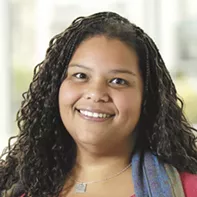Briskly, I hustled from the gate towards baggage claim, slowing only when I noticed a couple anticipating an arrival. They were grandparents, awaiting the teen walking directly behind me. When she came into view, warmth radiated from them. They swooped in and surrounded her with hugs and questions.
I only ever knew grandmothers — grandfathers long gone from this world before my arrival in it. Yet, the love of these women was enough. They delivered it in quiet actions from the heart, in helpings large as the mounds of rum raisin ice cream or bowls of soup joumou that my gramma, Man Cala (mah kalah), doled out. "Manje" (mahn-j) she would order in Haitian Creole. When she wasn't feeding my soul with actual food, she'd bounce me on knobby knees, always one hand on my back, the other on my chubby belly, holding me tightly. My oma, Hertha, served up her love in tiddlywinks, puzzles and card games that lasted hours. She, too, made mounds: pancakes as thin as crepes and cookies from recipes passed down on ancient cards that I still carry. She'd walk me around Queens, stopping into the butcher shop where she'd chat in German to the meat cutters, who would always pass treats to my little, bronze hand, as it popped out from the stroller in expectation. Upon returning home, I was further showered in adoration, bathed in combinations of scents I can no longer reproduce, slathered with lotion (even between my toesies) and tucked snuggly into the crispest, percale sheets I've ever felt against my skin.
Back in the airport, I could feel those memories coursing through my body like blood. Pain born from the loss of love cuts so deeply it can seize, and so I was frozen, wondering: How can we ever be whole if we are destined to lose parts of ourselves? Somehow, I found an answer buried among all that I'd lost, yet still struggle to hold onto.
My darling, there will be times when your foundation will crumble. You'll break apart, causing splinters to move inward, inflicting damage onto yourself and outward, causing pain for others. However, love is patient. It never disappears, despite those periods of unnecessary destruction. Though pain and love arise codependently, love is unconditional, biding time until you tire of the tantrums and accept the truth of its transcendent nature. Pain can feel like a constant visitor, so simply acknowledge and acquiesce to it, as you would a guest. Allow pain to have its place because you know that love is eternal. It remains housed safely within. Being loved well is both blessing and burden. You'll perpetually rediscover the contours of love once so sweetly given, thus you have no choice but to constantly consider the shape your love takes.
With gratitude, my mind soothed, body stilled and smile resurrected. I grabbed my luggage, got my own hugs and questions and headed home. Finally ready to settle down. ♦
Inga N. Laurent is a local legal educator and a Fulbright scholar. She is deeply curious about the world and its constructs and delights in uncovering common points of connection that unite our shared but unique human experiences.


















